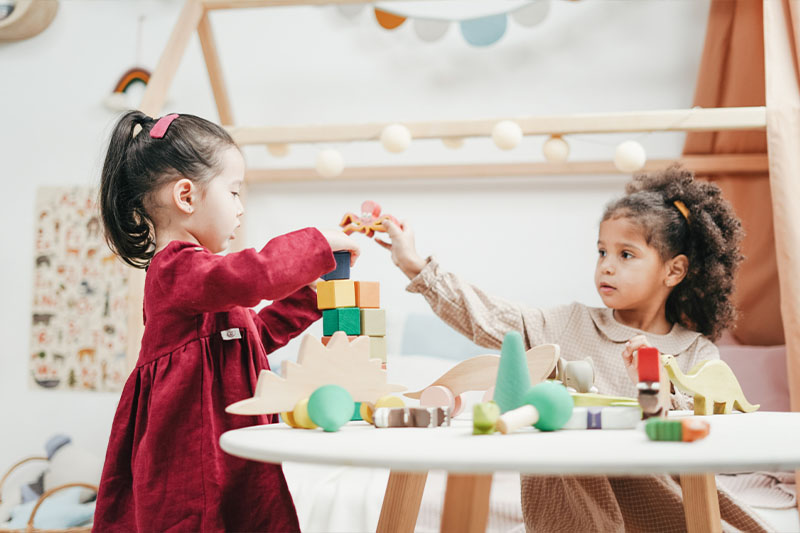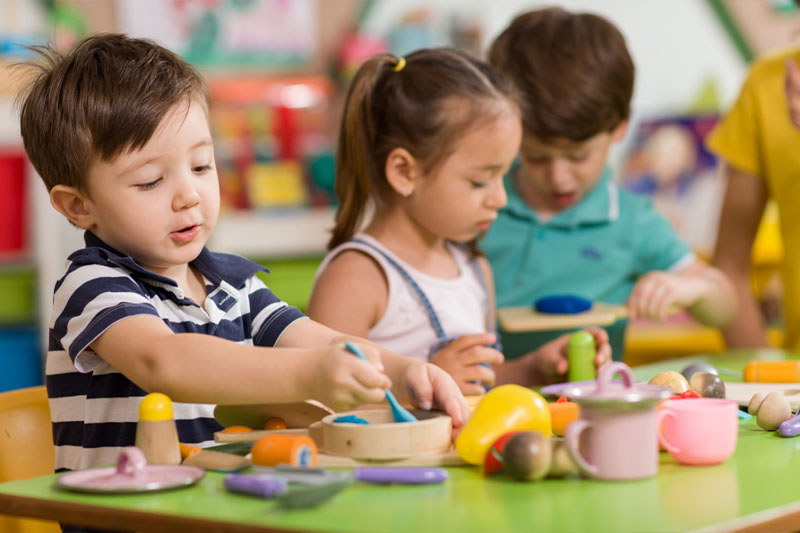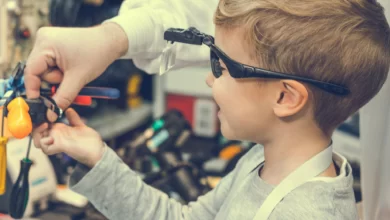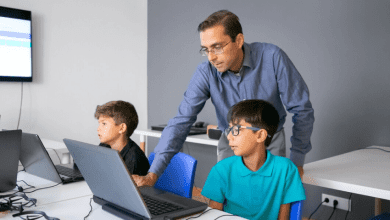Why is preschool education important for my child?

Is preschool education necessary for my child? Isn’t my child too young to be a part of a structured learning environment? Will my child be able to cope with the anxiety of separation?
If you are worried about all of this and a lot more, here are five reasons why preschool education is the best choice you can make for your little one – as advised by experts.

-
The early years mark the period of highest brain development in preschool
The size of a newborn’s brain, which is around a quarter of an average adult brain size, grows double in size in the first 12 months. By the age of three, it reaches 80% of an adult’s brain size, and 90% of a child’s brain is developed by the time they reach the age of five. Early educators and parents often remark that a child’s brain acts as a sponge during these years. Research has revealed that early childhood experiences have a direct impact on the child’s brain development affecting their health, learning ability, and success in life in the long term.
-
They have a huge amount of time and energy
Children in the early years have a high level of energy coupled with an ample amount of free time. This is a dangerous combination for parents as keeping children engaged all the time is a real struggle. Sending your child to a preschool is a great way to channel their energy and keep them engaged in activities that provide meaningful experiences that directly impact their well-being in life.

-
All-round development is a necessity, not an option
Attending preschool is much more than learning ABC’s and 123’s. Early years are the best time to give your children the headstart they need to achieve the developmental milestones. A loving, stimulating and multicultural environment is a golden opportunity to learn the social and emotional skills that last a lifetime. Children learn to take turns, listen to each other, apologise, understand, accept the differences, empathise and be compassionate with their peers to mention a few. However insignificant it might seem in the early years, it is important to understand that this strong foundation is crucial to building a character and personality that ensures success in both personal and professional life in the long term.
-
The structured setting provides a smooth transition to school life
A well-planned classroom with teachers, children of the same age group, and child-friendly learning materials, and activities help a child to learn about the routine and structure while promoting independence. Children learn to follow instructions, take turns, share attention, ask questions, strengthen their fine motor skills, language skills, cognitive skills, and thinking skills and develop grace and courtesy which prepares them for a smooth transition to formal school life.
- It gives you the work-life balance that you need
Last but not the least, we all need time to grow, learn, - work, relax, follow our passion and live a fulfilling life. Even parents need that space and time. While children are away at school learning about the world,
- exploring, developing skills, and making friends, you have a great opportunity to work
- pursue your hobbies, relax or catch up with an old friend.

Research by the US National Institute of Health (NIH) suggests that preschool education has a profound impact on the lives of children later on. Children who receive early childhood education are more likely to carry the values they have learned into adulthood.
International organizations and leaders around the world are recognizing the importance of early childhood education. Even United Nations Educational, Scientific and Cultural Organization (UNESCO) emphasizes the many benefits of preschool education stating,
“Early childhood care and education (ECCE) is more than preparation for primary school. It aims at the holistic development of a child’s social,
emotional, cognitive and physical needs to build a solid and broad foundation for lifelong learning and wellbeing. ECCE can nurture caring, capable and responsible future citizens.”






